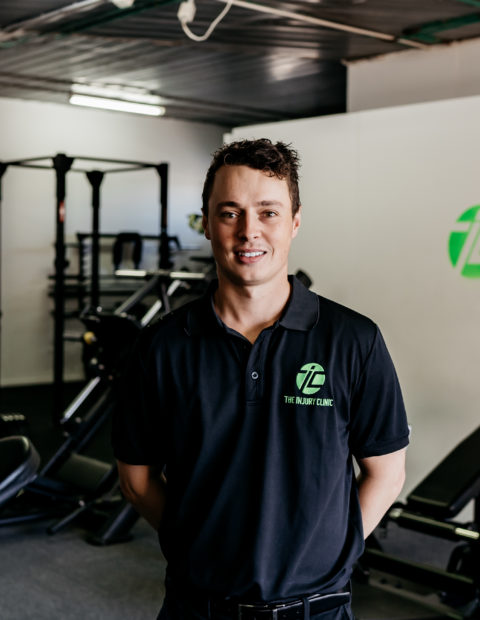
Want to learn more about bone stress injuries?
Lachie Cooper, Physiotherapist, has answered some common questions.
Check them out below!



What causes a bone stress fracture?
Bone is constantly broken down and rebuilt in a process called ‘bone remodelling’. When training loads are excessive, the cumulative mechanical stress results in bone breakdown exceeding the rate of bone formation. As a result, bone tissue becomes weaker and a fracture may occur. In individuals with impaired bone remodelling (i.e., athletes with disordered eating), seemingly normal loads may be sufficient for breakdown to exceed bone formation and result in injury.
I have a stress fracture in my low back which never healed. Will I ever be able to play sport again?
It’s difficult to say without assessing your back, so always get it checked by a physiotherapist if you’re in doubt! However, there is a reasonably significant proportion of athletes with an asymptomatic ‘pars defect’. This is a specific type of fracture present in the spine. If this is an old injury and no longer painful, healing has occurred to a point where it is generally safe to continue participating in sport. An acute and symptomatic pars defect is managed entirely differently, requiring rest and a period of rehabilitation. Always get it checked by a professional!
What is the difference between a stress fracture and a stress response?
A stress response is characterised by the presence of bone inflammation (also called bone oedema) without the presence of a fracture line on imaging. Whereas a stress fracture has a distinct fracture line identifiable on imaging. Although these are two distinct classifications, it is often best to think of bone stress injuries lying on a continuum, ranging from low grade bone oedema through to a significant fracture.
I’ve had 2 stress fractures in the past and am worried about getting another, what should I do to prevent this?
You and your healthcare practitioners (GP, physiotherapist & dietician) need to identify and address the underlying reasons for the development of these injuries! They can assist in identifying an issue with your:
-
- Training load (new or excessive exercise patterns)
- Diet (insufficient energy intake, vitamin D or calcium deficiency)
- Biomechanics
- Bone mineral density
- Endocrine system (i.e. hormones)
If there are concerns about bone health and hormones, an endocrinologist may be involved in your management.
How do I know if I have a bone stress injury?
A bone stress stress injury may be diagnosed clinically within a consultation based on your history and physical examination. Generally, patients will report a gradual onset of pain which initially may only be present with prolonged activity. As the injury worsens, it may progress to pain felt at rest and be accompanied by swelling. In some cases the diagnosis will be confirmed via imaging, particularly when the affected site is at a higher risk of complication. Plain film x-rays typically only detect more severe or older stress fractures, so MRI or CT may be used instead. Always get it checked by a professional!
Can a small stress fracture or response be worsened by a big impact?
Absolutely. Bones with a stress response or fracture are susceptible to aggravation with blunt trauma, as bone tissue is sensitised and it’s strength is often impaired.
Furthermore, individuals with poor bone health are at risk of bone stress injuries. In someone unaware of their bone health status, the presence of a stress fracture would be a ‘red flag’ suggesting they are potentially more likely to sustain a significant bone injury from trauma.
Schedule your next visit
If you’re interested in booking an appointment with one of our team members, contact our clinic today and we’ll be happy to find time for a consultation.
Schedule ConsultExplore our physiotherapy services
Musculoskeletal
Physiotherapy
At The Injury Clinic Physiotherapy, we work closely with our clients to get them back doing the things they love as soon as possible.
Sports
Physiotherapy
The Injury Clinic Physiotherapy works with recreational to elite athletes to keep them injury free and achieving their goals.
Dry
Needling
All physiotherapists at The Injury Clinic Physiotherapy are qualified and experienced in dry needling as a treatment technique.
Running Related Injuries
Physiotherapists at The Injury Clinic Physiotherapy have a special interest in the diagnosis and management of running-related injuries.
Women's Health
Physiotherapy
We have physiotherapists with a special interest in Women's Health, including pre and post partum presentations. Let us work with you to stay fit, active and healthy.
Pre & Post-Operative
Physiotherapy
Physiotherapists at The Injury Clinic Physiotherapy work closely with surgeons to ensure best outcomes post surgery.
Injury Q&A
Our clinicians have been answering all your questions!
Running Analysis
The goal of a running analysis is to identify aspects of your technique that may be contributing to injury or impacting on efficiency.






Schedule your next visit
If you’re interested in booking an appointment with one of our team members, contact our clinic today and we’ll be happy to find time for a consultation.
Schedule Consult